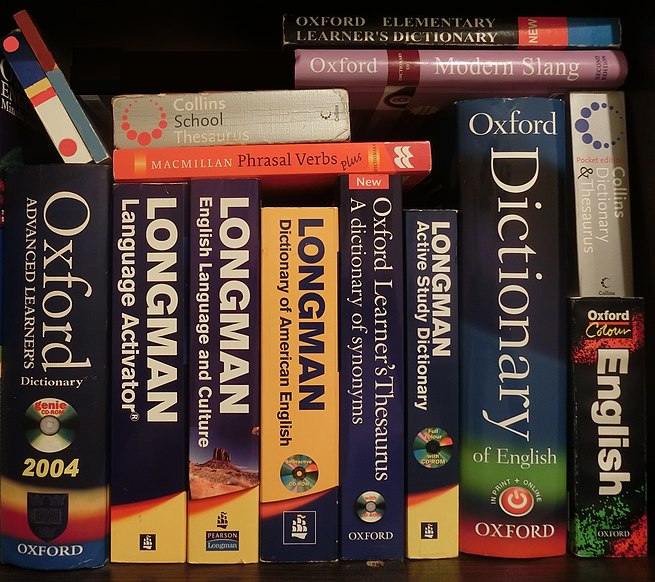
Main Difference
The main difference between Verb and Noun is that the Verb is a class of words that, from the semantic point of view, contain the notions of action, process or state, and, from the syntactic point of view, exert the core function of the sentence predicate and Noun is a part of speech in grammar denoting a figurative or real thing or person
-
Verb
A verb, from the Latin verbum meaning word, is a word (part of speech) that in syntax conveys an action (bring, read, walk, run, learn), an occurrence (happen, become), or a state of being (be, exist, stand). In the usual description of English, the basic form, with or without the particle to, is the infinitive. In many languages, verbs are inflected (modified in form) to encode tense, aspect, mood, and voice. A verb may also agree with the person, gender or number of some of its arguments, such as its subject, or object. Verbs have tenses: present, to indicate that an action is being carried out; past, to indicate that an action has been done; future, to indicate that an action will be done.
-
Noun
A noun (from Latin nōmen, literally meaning “name”) is a word that functions as the name of some specific thing or set of things, such as living creatures, objects, places, actions, qualities, states of existence, or ideas. However, noun is not a semantic category, so that it cannot be characterized in terms of its meaning. Thus, actions and states of existence can also be expressed by verbs, qualities by adjectives, and places by adverbs. Linguistically, a noun is a member of a large, open part of speech whose members can occur as the main word in the subject of a clause, the object of a verb, or the object of a preposition.Lexical categories (parts of speech) are defined in terms of the ways in which their members combine with other kinds of expressions. The syntactic rules for nouns differ from language to language. In English, nouns are those words which can occur with articles and attributive adjectives and can function as the head of a noun phrase.
-
Verb (noun)
A word that indicates an action, event, or state.
“The word “speak” is an English verb.”
-
Verb (noun)
Any word; a vocable.
-
Verb (noun)
An action as opposed to a trait or thing.
“Kindness is a verb, not an adjective. You’re only kind if you do kind things.”
-
Verb (noun)
A named command that performs a specific operation on an object.
-
Verb (verb)
To use any word that is not, or had not been a verb (especially a noun) as if it were a verb.
-
Verb (verb)
To perform any action that is normally expressed by a verb.
-
Noun (noun)
A word that can be used to refer to a person, animal, place, thing, phenomenon, substance, quality, or idea; one of the basic parts of speech in many languages, including English.
-
Noun (noun)
Either a word that can be used to refer to a person, animal, place, thing, phenomenon, substance, quality or idea, or a word that modifies or describes a previous word or its referent; a substantive or adjective, sometimes also including other parts of speech such as numeral or pronoun.
-
Noun (verb)
To convert a word to a noun.
-
Verb (noun)
a word used to describe an action, state, or occurrence, and forming the main part of the predicate of a sentence, such as hear, become, happen.
-
Verb (verb)
use (a word that is not conventionally used as a verb, typically a noun) as a verb
“any English noun can be verbed, but some are more resistant than others”
-
Noun (noun)
a word (other than a pronoun) used to identify any of a class of people, places, or things (common noun), or to name a particular one of these (proper noun).
